- Two junta officers detained after Arakan Army seizes three camps in Thabaung
- Junta torches at least 11 villages in Kyaukphyu Twsp over past year: Residents
- Tactical failures worsen explosive ordnance risks for civilians
- Children deprived of education amid regime airstrikes, ‘instability’ claims
- Regime using Constitutional Tribunal Law amendments to build ‘personalist dictatorship’: ISP-Myanmar
Arakan State authorities urged to undertake comprehensive mosquito mitigation measures
“We need to spray mosquito repellants in our village because the mosquitoes bite so much. We want [the health department] to spray mosquito repellents as much as possible in our villages.
26 Jul 2023
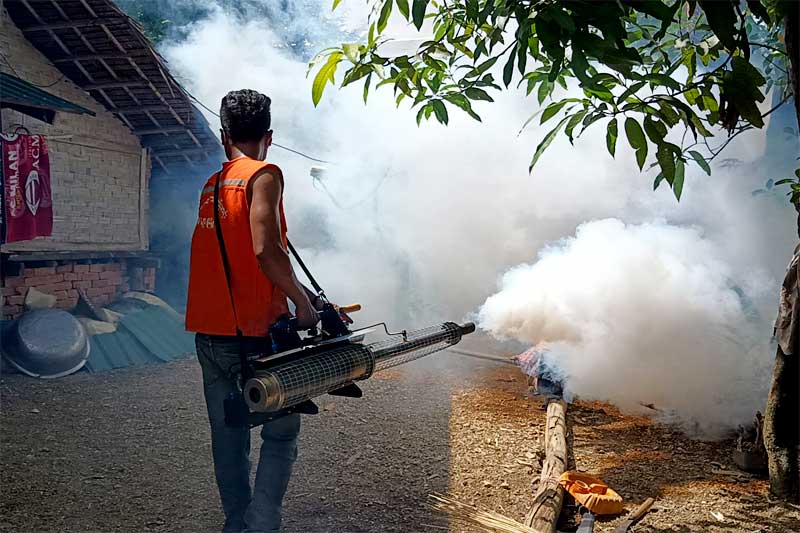
DMG Newsroom
26 July 2023, Sittwe
With elevated reporting of seasonal flu, dengue fever and malaria in Arakan State, residents are urging that comprehensive mosquito prevention activities be undertaken to tamp down incidence rates of mosquito-borne illnesses.
There were 963 cases of dengue fever recorded in Arakan State from January to July 21 of this year, according to the Arakan State Department of Public Health (DPH). Most of the dengue cases were among children under the age of 15.
Cases of dengue fever have been on the rise in Arakan State following Cyclone Mocha, which made landfall near Sittwe on May 14 — there were 88 cases in May, 491 cases in June and 356 cases through July 21. Public health experts say the increase in dengue cases is attributable to the abundance of breeding grounds for mosquitoes in post-cyclone Arakan State.
About 30 children between the ages of 5 and 12 are sick in Letpandaw Village, Mrauk-U Township, and a 9-year-old was recently diagnosed with malaria, so residents are asking that mosquito control activities be carried out in the village.
“We need to spray mosquito repellants in our village because the mosquitoes bite so much. We want [the health department] to spray mosquito repellents as much as possible in our villages. And I would also like to ask local authorities to build a rural healthcare clinic in the village,” said U Tha San Aung, the administrator of Letpandaw Village.
“In the townships where dengue is common, we spray for mosquitos at least three days a week, cleaning the environment, and checking whether the ponds are clean or not,” said Dr. Zaw Zaw Aung, assistant director of the Arakan State DPH, who added that rainy-season mosquito control efforts are not always possible in remote parts of the state where travel is difficult.
The Department of Health has urged the public to follow basic protocols for keeping their homes clean and free of standing water.
On July 11-12, the Department of Health carried out dengue prevention and control activities in Sittwe’s Magyimyaing, Setyonsu and Pyidawtha wards, the junta-controlled MRTV reported.
Residents are demanding that the Health Department conduct mosquito-control activities not only in the city but also in the surrounding rural areas.
“We want the Department of Health to conduct health awareness campaigns for the public. It would be better if the health department could visit the rural areas as far as possible to spray mosquito repellents and provide awareness,” said Ko Lin Lin, chairman of Myitta Yaung Chi, a local charity in Sittwe.
Social aid groups say they are working hard to prevent and suppress mosquito-related diseases in Arakan State, but they add that their efforts alone are not enough.
“Although we have provided awareness on the basics of preventing and suppressing mosquito-related diseases, we still cannot spray mosquito repellent like the health department. It is not easy to buy a sprayer. A mosquito repellent machine costs about K2 million to K3 million,” said an official from the Western Door Rescue Association.
A statement from the United Nations Office for the Coordination of Humanitarian Affairs (UNOCHA) on July 26 said the people affected by Cyclone Mocha in Arakan State remain under the threat of mosquito-borne diseases during the rainy season.




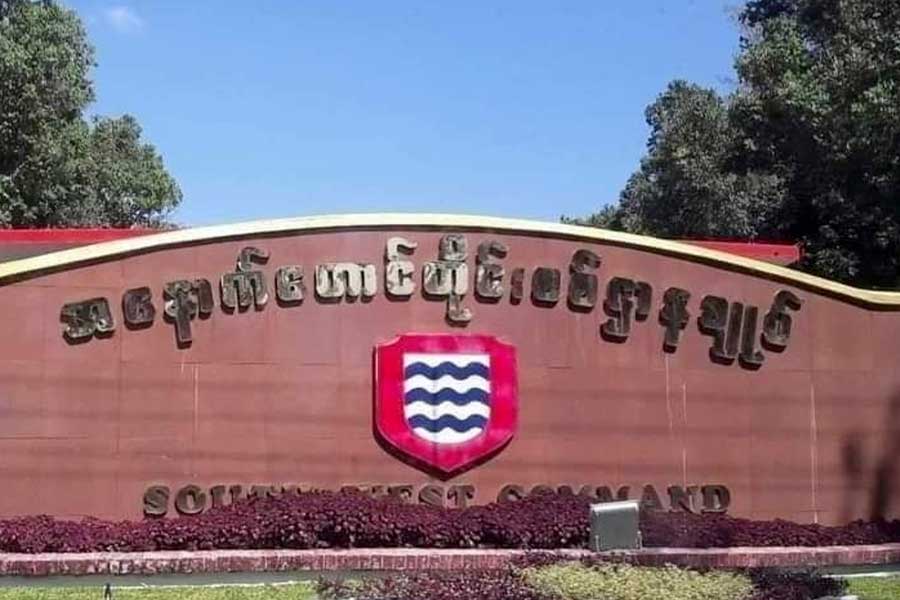
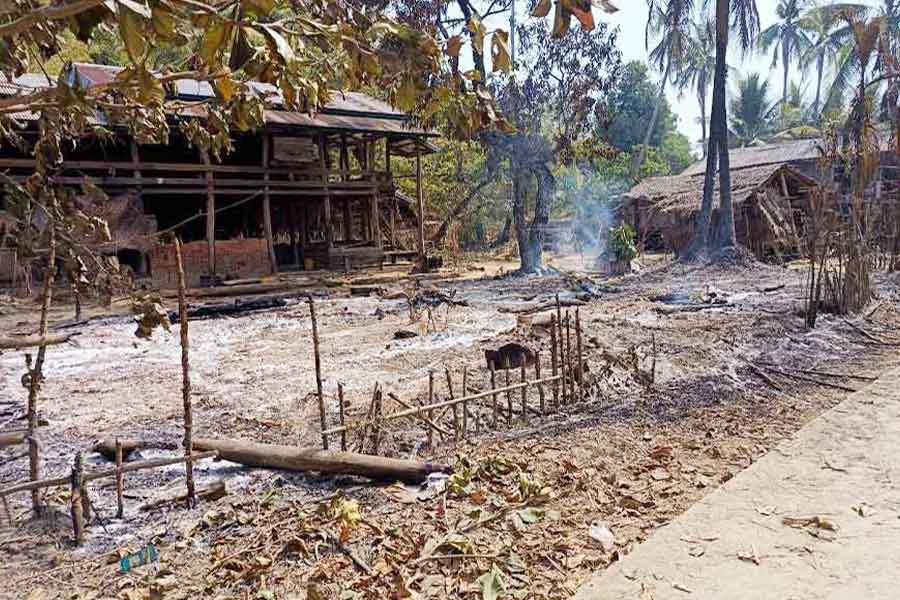
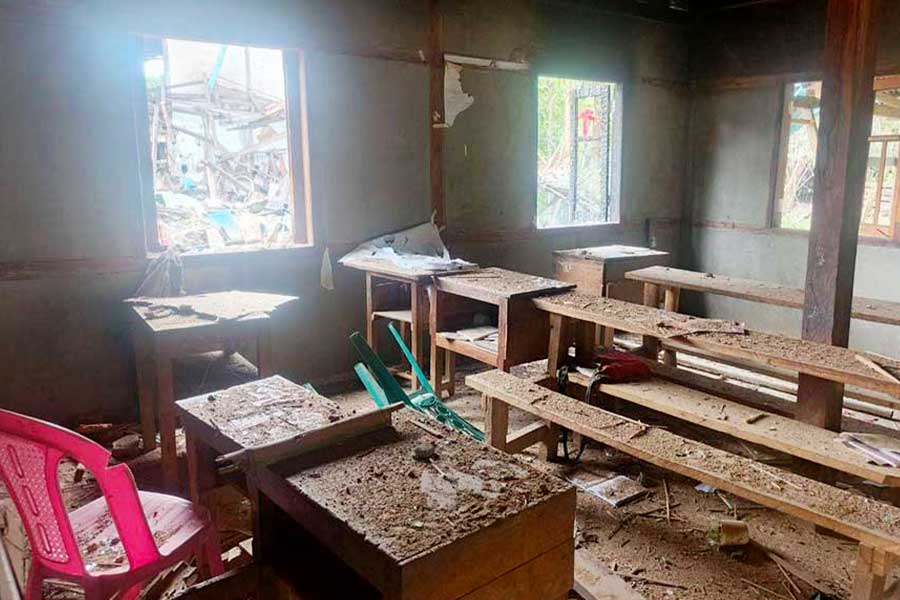
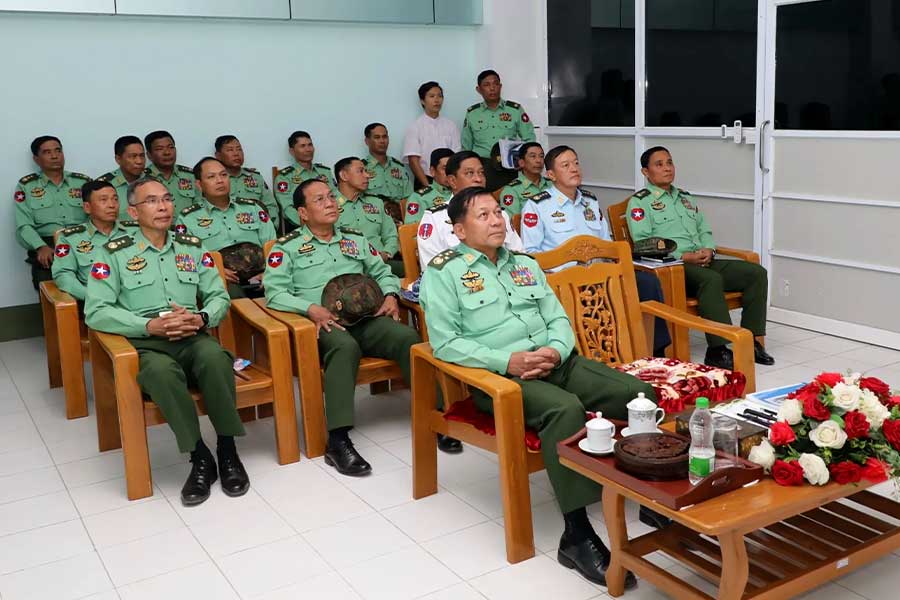
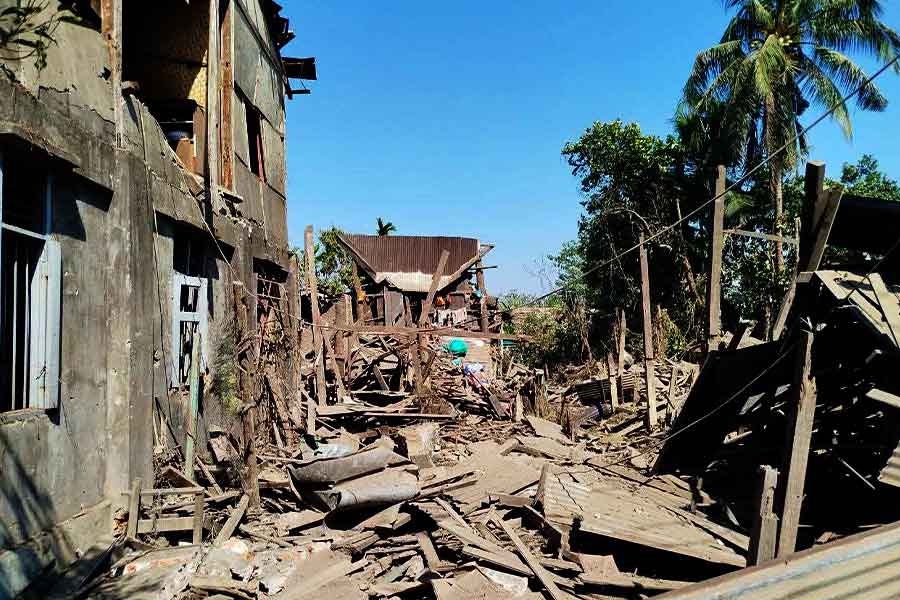







.jpg)
